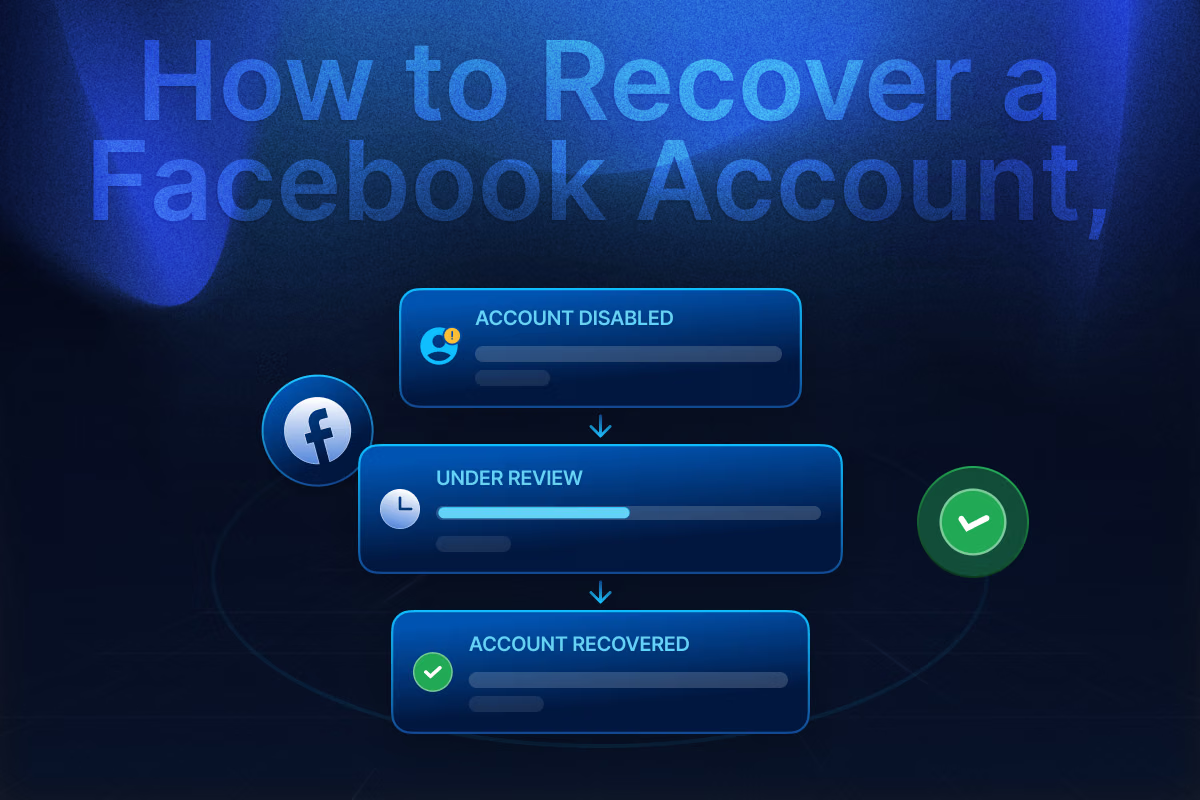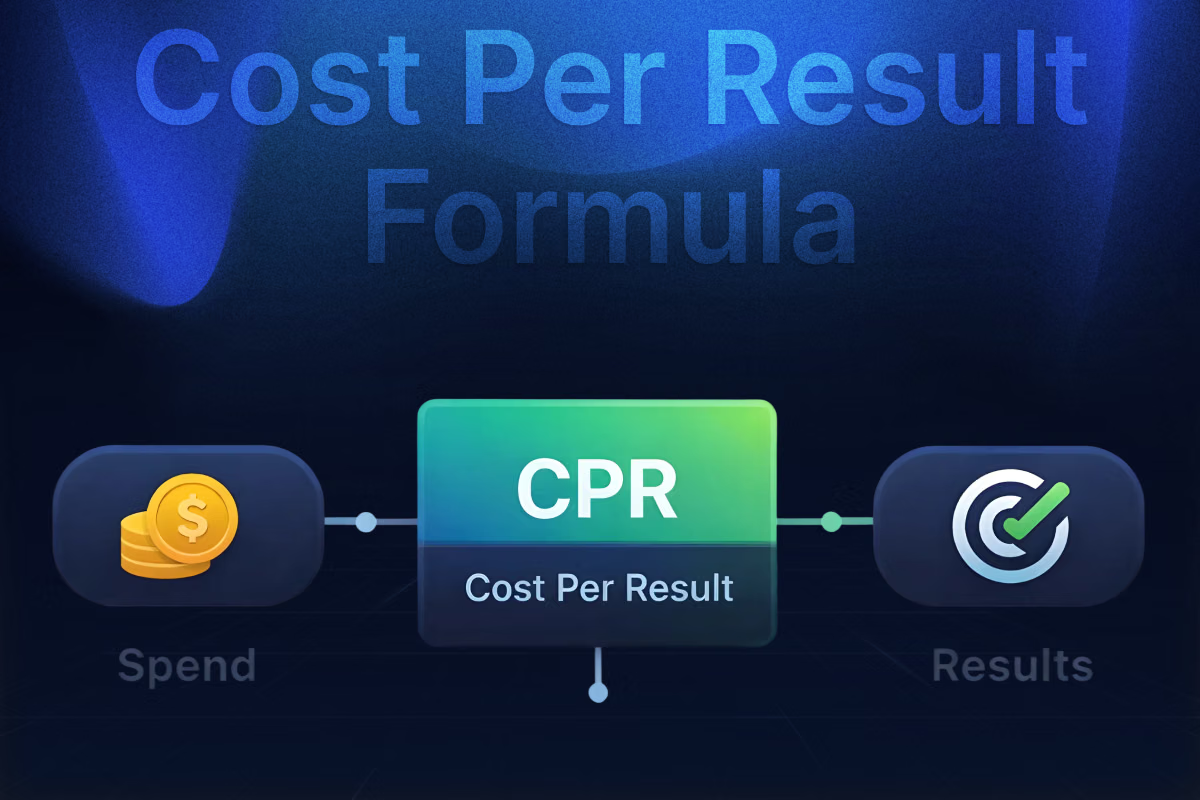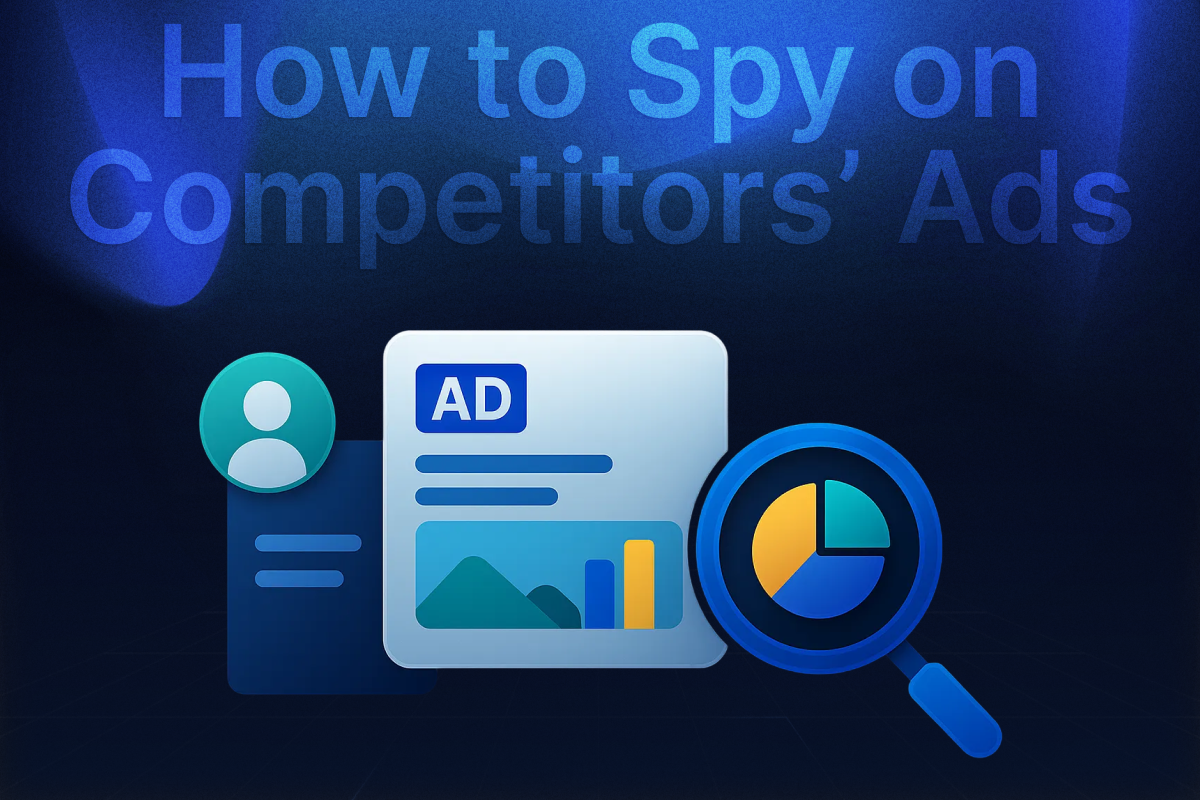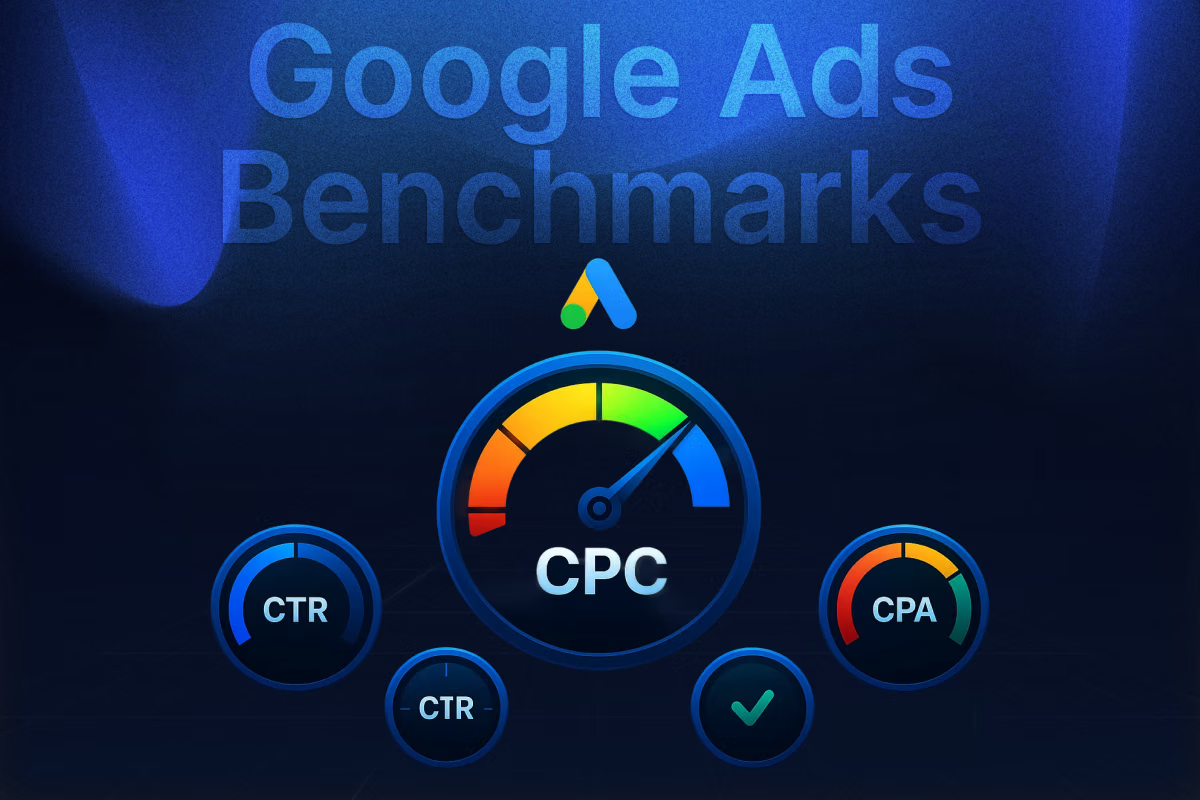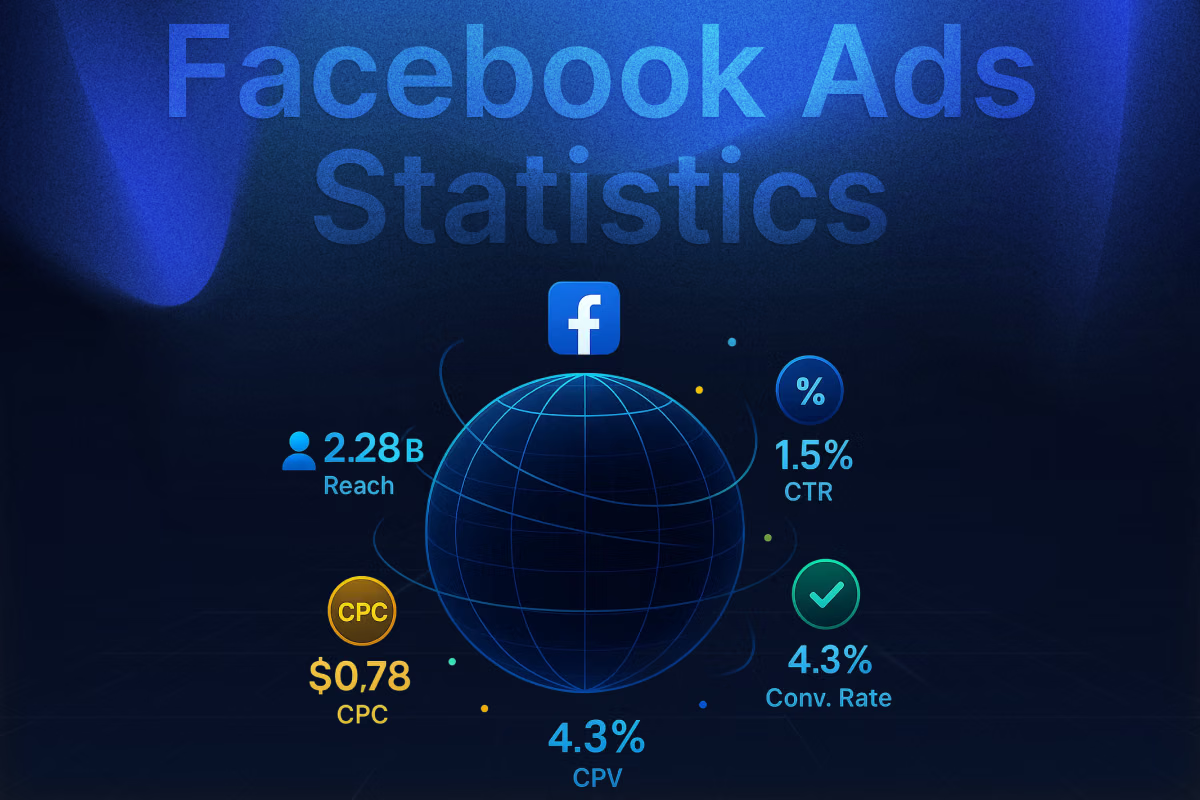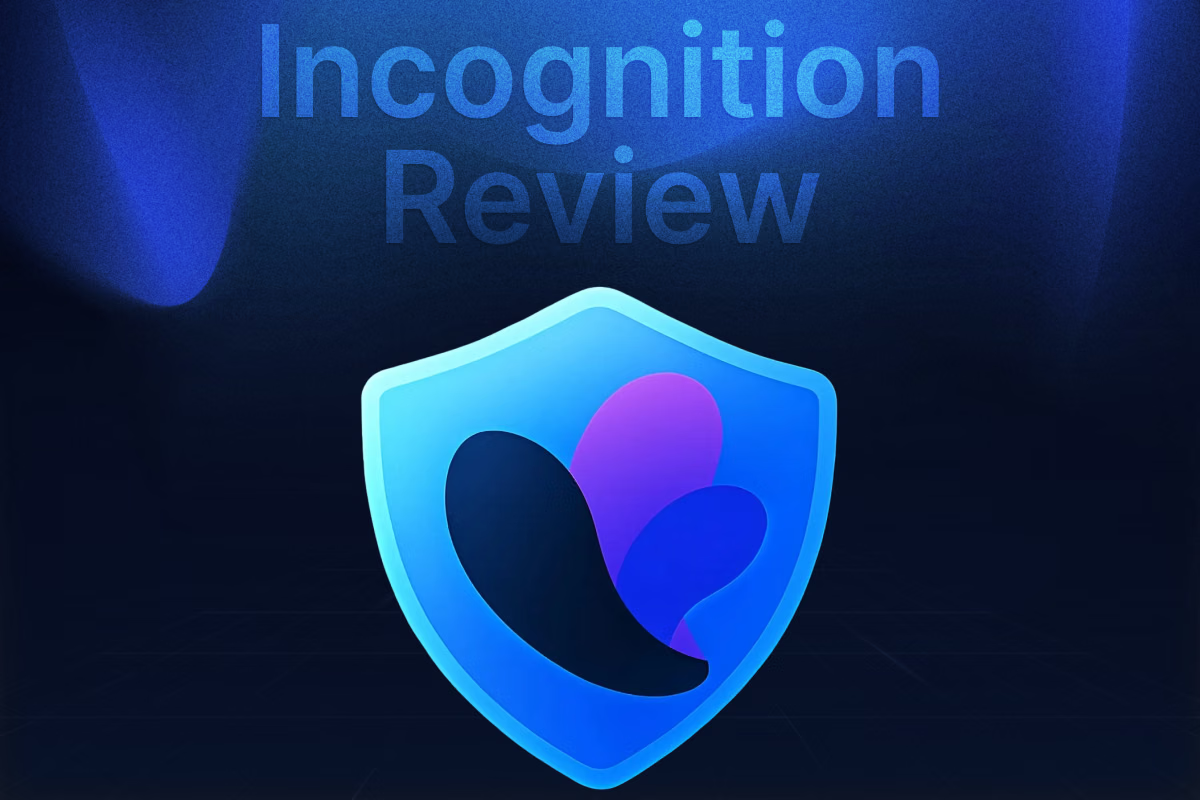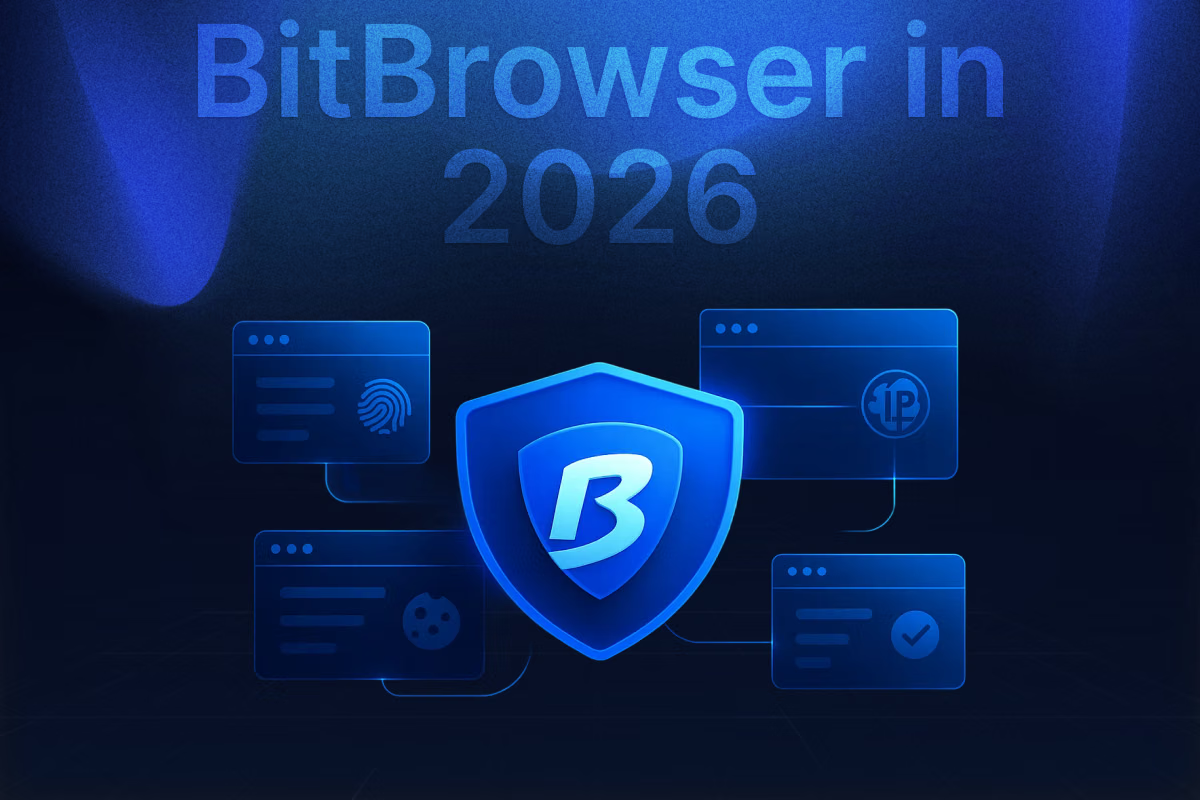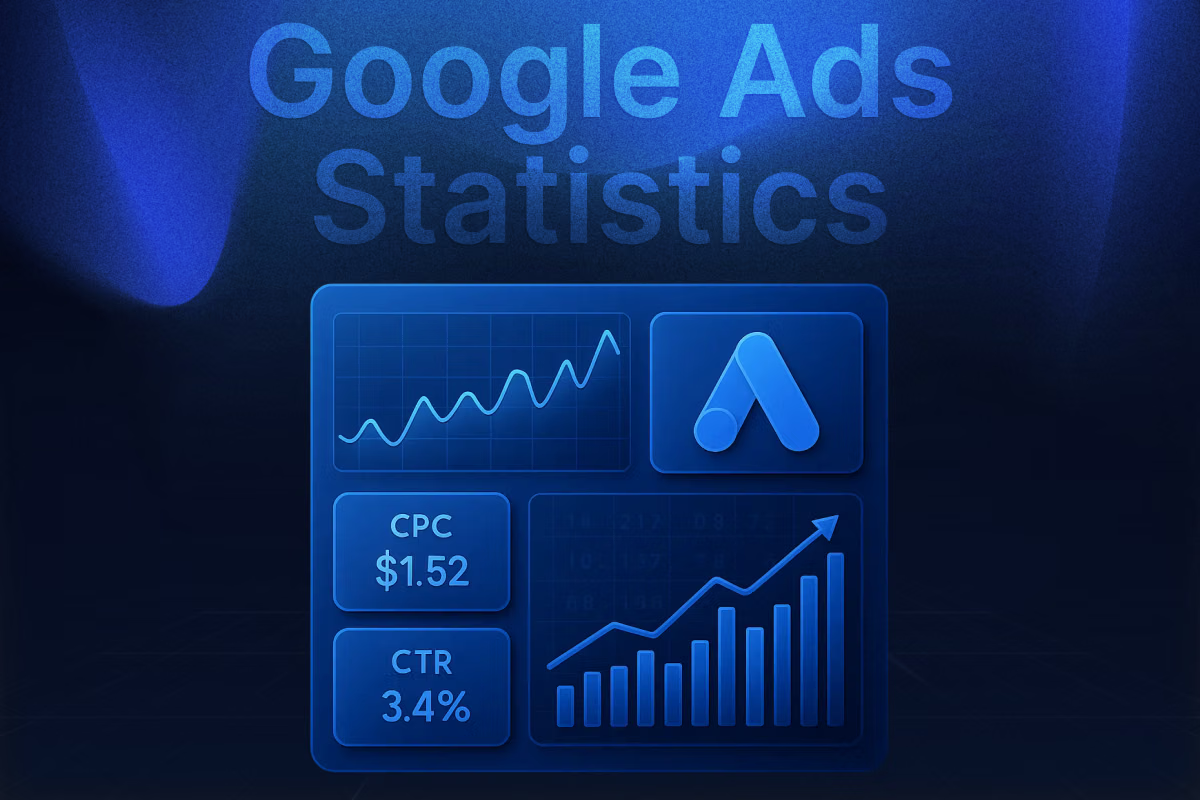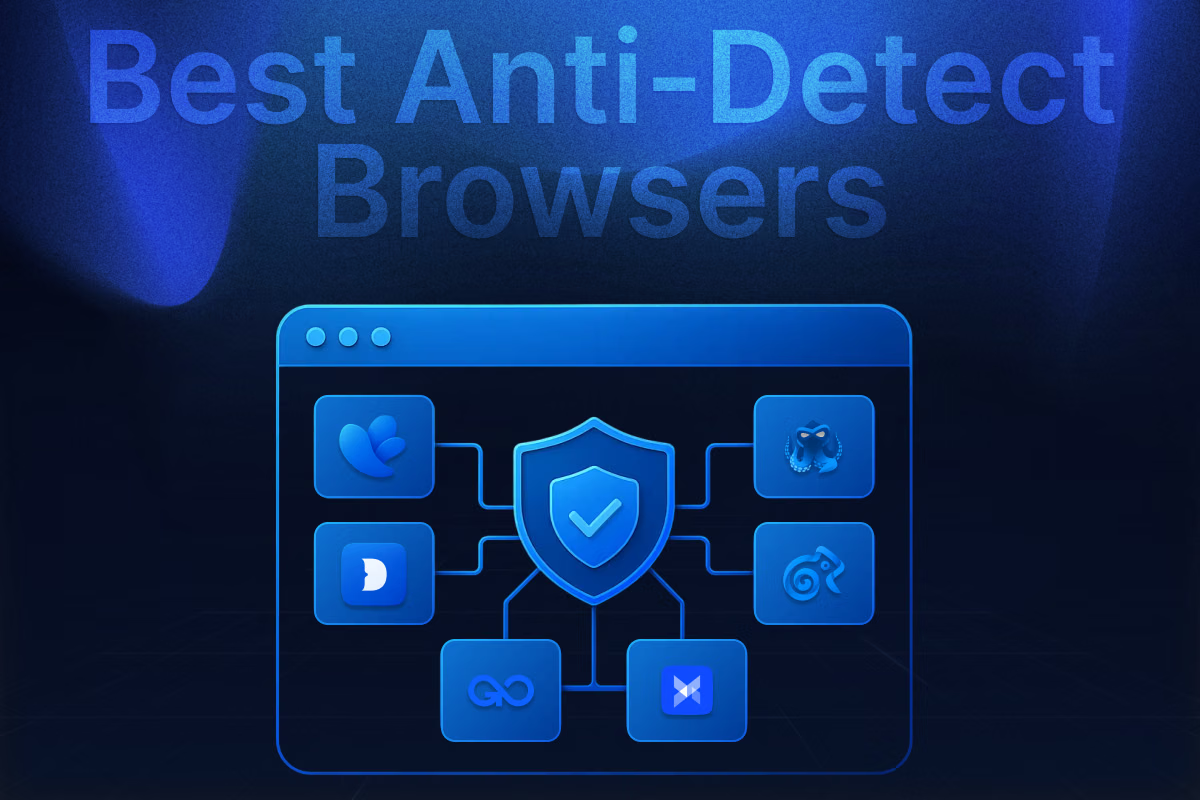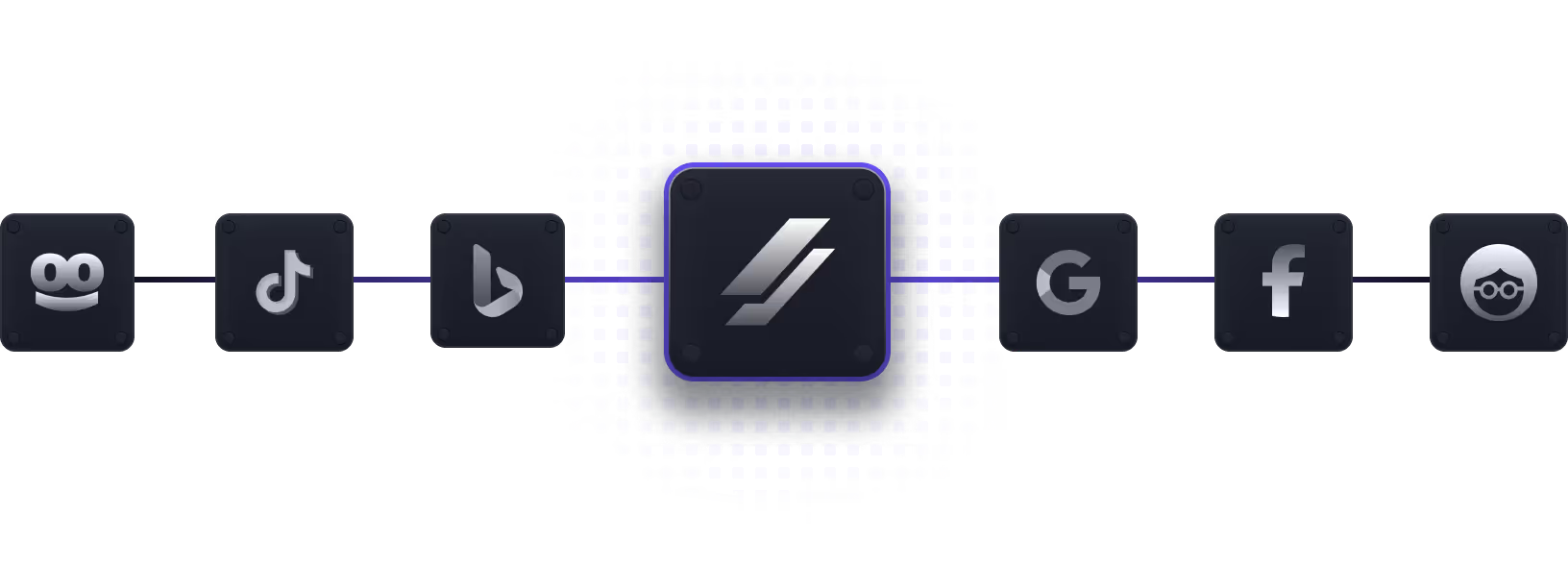Opening a business account on Facebook or Instagram is likely the first stage for your growing e-commerce business as a modern-day entrepreneur. Making things convenient for these digital shops, Facebook Business Manager has become the cornerstone of digital advertising for businesses of all sizes. It serves as the central hub where you can manage your ad accounts, pages, and marketing assets across Meta's ecosystem. Shockingly, though, you may not be using your Facebook Business Manager account to its full potential.
To unlock the full potential of your digital business in terms of advertising freely and without limitations, you must get your Facebook Business Manager account verified. Whether you're scaling your ad spend, entering regulated industries, or simply want to establish greater credibility with Meta's systems, getting your business manager account verified is a must. This blog explains how to verify your Facebook Business Manager account and use Meta’s most powerful advertising tools without restrictions that can cripple your marketing efforts.
What Does It Mean to Verify Facebook Business Manager?
When you verify Facebook Business Manager, you are confirming your business's identity to Meta through a comprehensive documentation process that proves your company's legitimacy and compliance with platform requirements. Verification serves as Meta's way of ensuring that businesses operating on their platform are genuine entities with proper legal standing, rather than potentially fraudulent or non-compliant operations that could harm user experience or violate regulatory requirements.
The verification process requires businesses to submit official documentation that validates their legal existence, including business licenses, incorporation certificates, and other government-issued documents that establish corporate identity. This documentation must match exactly with the business information provided in your Business Manager account, creating a verified chain of identity that Meta can trust when making decisions about account privileges and restrictions.
From Meta’s perspective, verifying your business manager ensures the following two qualities of your business:
- Your business is genuine: It ensures that your business manager isn’t being used for fraud or illegal activities. This, in turn, gives Meta the confidence to allow your business to grow without bounds.
- You are the legal representative of your business: It also ensures that your business is being run by one of its owners or authorized personnel.
What Verification Unlocks for your Business Operations

As you verify your Facebook Business Manager, you will have access to a number of perks that can boost your business. A verified business manager account can give you the following benefits:
- Higher trust score with Meta's internal systems: Higher trust scores can improve your ad delivery and reduce the likelihood of restrictions from Meta.
- Ability to run ads in regulated categories: You will have ad access to regulated categories such as financial services, cryptocurrency, political advertising, and other sensitive verticals that require additional compliance measures.
- Increased spending limits: A verified Business Manager account allows you to increase your ad spending limits more quickly than usual.
- Fewer random bans or restrictions: After you verify your Facebook Business Manager account, you will face fewer random restrictions that are annoying for growing businesses.
- Full access to features inside Facebook's business ecosystem: You get access to Business Suite, Commerce Manager, WhatsApp API integration, and Meta's advanced APIs for custom solutions.
- Eligible for developer features: Meta also allows verified businesses to obtain advanced access to any permission on Meta for Developers.
- News page index: You will be able to register your page for the News Page Index after you get your verification.
The verification badge also signals to Meta's review systems that your business has been vetted, which can result in faster ad approvals and fewer policy violations triggered by automated systems that might otherwise flag unverified accounts for suspicious activity.
How to Verify Facebook Business Manager (Step-by-Step)
The verification process requires careful preparation and attention to detail, as any discrepancies or errors can result in rejection and delays that may impact your advertising operations. Following this systematic approach will maximize your chances of successful verification on the first attempt.
Step 1: Prepare Your Business Documents
Before initiating the verification process, gathering and organizing the correct documentation is crucial for a smooth submission. The documents you provide must create a clear and consistent picture of your business identity that matches exactly with the information in your Business Manager account.
Acceptable documents for verification include:
- Certificate/Articles of Incorporation
- Business Registration or License Document
- Government Issued Business Tax Document (i.e., Tax Certificates)
- Business Bank Statement
- Utility Bill (for your Business Address and Phone Number)
All documents must match your business name and legal address exactly as they appear in your Business Manager settings. Even minor discrepancies in spelling, punctuation, or formatting can trigger automatic rejection, requiring you to restart the process with corrected documentation. The documents must be in one of the listed languages for Meta’s verification process.
Document quality is equally important, as poor scans or unclear images can result in immediate rejection. Ensure that all text is readable, official seals or stamps are visible, and the documents are presented in their complete form without cropping that might remove important identifying information.
Step 2: Go to Business Settings > Security Center > Start Verification
- Accessing the verification portal requires navigating through Meta Business Manager's interface to locate the appropriate submission area. This must be done by users with full administrative access to the Business Manager.

- Navigate to Business Settings by clicking on the gear icon in the main Business Manager interface, then locate the Security Center section within the settings menu.

- Look for the "Start Verification" button or similar verification initiation option within the Security Center interface. The exact labeling and location of this button may vary depending on your account status and Meta's current interface design.

Note that if you don't see the verification option, it may indicate that verification is not currently required for your account, or that certain prerequisites haven't been met. Some accounts may need to reach specific spending thresholds or activity levels before verification becomes available.
Step 3: Submit Business Information
Provide your legal business name exactly as it appears on your official business registration documents, avoiding any informal names, DBA variations, or marketing names that might not match your legal paperwork. The registered address must be the official business address on file with government authorities, not a PO Box, personal address, or informal mailing address that might not appear on official documents.

Include a business phone number that is actively monitored and associated with your business operations, as Meta may use this number for verification calls or text message confirmations. The website URL must be active, professionally maintained, and clearly represent your business operations with content that matches your advertising activities.
Step 4: Upload Required Documents
Upload the legal documents you gathered in Step 1, ensuring that each file meets Meta's technical requirements for clarity and format compatibility. Documents must be clear and readable, with all text, seals, and identifying marks visible to verification reviewers who will manually examine each submission.
File formats should be PDF, JPEG, or PNG to ensure compatibility with Meta's document processing systems. Avoid proprietary formats or compressed files that might not display properly for reviewers, and ensure that file sizes are within Meta's specified limits to prevent upload failures.
Step 5: Phone Verification (if required)
Meta may send a verification code via SMS text message or automated phone call to the business phone number you provided during the information submission phase. The verification process typically requires entering this code within a specified time window to confirm that you have access to the business phone line.
Use the exact phone number you provided in the business information step to avoid confusion or failed verification attempts. If you don't receive the verification code promptly, check that the phone number was entered correctly and that your phone system can receive SMS messages or automated calls from Meta's verification system.
Step 6: Domain Verification (optional but recommended)
Navigate to Business Settings, then Brand Safety, and finally the Domains section to access domain verification tools. Add your primary business domain and complete the verification process using either DNS record modification or meta-tag implementation, depending on your technical capabilities and website access level.
DNS verification requires adding a specific TXT record to your domain's DNS settings, which provides definitive proof of domain ownership and administrative control. Meta-tag verification involves adding a specific HTML tag to your website's header, offering an alternative for users who have website editing access but not DNS management capabilities.
Step 7: Submit and Wait
After completing all required steps, submit your verification application and prepare for Meta's review process, which involves manual examination of your submitted materials by Meta's verification team. The review timeline can vary significantly based on application volume, complexity of your business structure, and completeness of your submission.
Meta typically reviews verification applications within 1-5 business days for straightforward submissions with complete documentation and clear business identity. However, complex business structures, international businesses, or applications requiring additional documentation may experience longer review periods extending to several weeks.
During the review period, avoid making significant changes to your Business Manager settings, as modifications might trigger additional review requirements or delay the verification process. Monitor your email and Business Manager notifications for any requests for additional information or clarification from Meta's verification team.
Who Needs to Verify Facebook Business Manager?
Understanding whether your business requires verification can help you determine the urgency and priority of completing this process. Meta's verification requirements have become increasingly stringent, particularly for businesses that pose higher risk or operate in sensitive categories where regulatory compliance is essential.
Businesses running ads in sensitive industries
These represent the primary category requiring mandatory verification. This includes financial services companies, cryptocurrency businesses, political organizations, healthcare providers, and any business dealing with age-restricted products or services. These industries face heightened scrutiny due to regulatory requirements and the potential for consumer harm if fraudulent operators gain access to advertising tools.
Agencies managing multiple client ad accounts
You may often find verification essential for maintaining operational efficiency and avoiding disruptions that could affect client campaigns. Managing multiple Business Managers or ad accounts without verification can trigger Meta's fraud detection systems, leading to account restrictions that can severely impact agency operations and client relationships.
International businesses working across multiple countries
International businesses frequently encounter verification requirements due to the complexity of cross-border advertising regulations and the need to comply with various jurisdictional requirements. Meta uses verification to ensure that international advertisers meet the legal standards of all regions where they operate.
Businesses planning to scale spend significantly
You will almost inevitably need verification as your advertising volume increases. Meta implements spending limits on unverified accounts as a risk management measure, and these limits can become restrictive as businesses grow their advertising investment.
Accounts notified by Meta
Anyone who sees the "Business Verification Required" notification in Meta Business Manager has received a direct mandate from Meta's systems indicating that verification is no longer optional for their account. This notification typically appears when algorithmic systems detect patterns that require additional identity validation.
The verification requirement often correlates with account activity patterns, industry classification, spending velocity, and geographic factors that Meta's risk assessment algorithms use to determine which businesses need additional vetting.
Common Reasons Why Verification Fails

Understanding the most frequent causes of verification rejection can help you avoid common pitfalls and improve your chances of successful verification on the first attempt. Meta's verification team follows strict guidelines and automated checks that flag inconsistencies or documentation issues.
Mismatched business name on documents
This is one of the most common rejection reasons, occurring when the legal business name on official documents doesn't exactly match the name provided in your Business Manager application. This includes variations in spelling, punctuation, entity type indicators (LLC, Inc., Corp), or the use of informal business names that don't appear on legal paperwork.
Low-quality scans or unreadable files
Unreadable files trigger automatic rejection by Meta's document processing systems, which use optical character recognition and manual review to verify document authenticity. Blurry images, poor lighting, cropped documents, or files with resolution too low for clear text reading will result in immediate rejection without manual review.
Non-registered business entities
Sole proprietors without formal business registration or informal business operations without legal documentation face verification challenges because they lack the official paperwork that Meta requires for identity confirmation. Freelancers and individual operators may need to complete business registration before attempting verification.
Using personal addresses instead of legal business addresses
Your verification may be rejected if the address provided doesn't match official business registration records or when home-based businesses use personal addresses that don't appear on business documentation. Meta requires official business addresses that match legal registration records.
Suspicious or incomplete information
This can trigger additional scrutiny or automatic rejection when applications contain gaps, inconsistencies, or patterns that Meta's fraud detection systems flag as potentially problematic. This includes recently created businesses with limited operational history or information that doesn't align with typical business patterns.
What If You Can't Verify? (Alternate Option: Buy Verified Facebook Business Manager)
Unfortunately, going ahead with verifying your Facebook Business Manager may not be as simple for everyone. Verification can come with several complications, which you may be looking to avoid. For advertisers who face obstacles in the traditional verification process, alternative solutions exist that can provide immediate access to verified Business Manager accounts. These alternatives serve businesses that encounter regulatory barriers, documentation challenges, or urgent operational needs that can't wait for standard verification processing.
You may be in the market for buying a verified Business Manager account if you are facing the following problems:
- Can't register a business officially due to regulatory restrictions, geographic limitations, or legal complexities.
- Don't want to wait for verification due to urgent campaign launches or client commitments.
- Operating in restricted regions where Meta's verification process is limited or unavailable may have no choice but to seek pre-verified accounts to access advertising tools.
- Need immediate verified Business Manager access for client work or scaling operations.
- Require multiple verified accounts to manage diverse client portfolios effectively.
Fortunately, you can easily buy verified Facebook Business Manager accounts from Uproas, providing pre-verified Business Managers that have already completed Meta's verification process and are ready for immediate use. Services like Uproas specialize in providing these verified accounts with proper documentation and clean operational history. This makes sure that you can move on with your ad campaigns on time and without the worry of restrictions or spending limits.
Benefits
Instant access to verified Business Manager accounts
Buying a verified BM account eliminates the waiting period and uncertainty associated with the traditional verification process, allowing businesses to launch campaigns immediately without delays that could impact marketing timelines or client commitments.
No need for legal paperwork submission
It removes the documentation burden for businesses that may lack proper paperwork or face complications in gathering the required legal documents, particularly beneficial for international businesses or those operating in complex regulatory environments.
Easier access to launch ads in restricted niches
Verified accounts already have the trust scores and permissions necessary to advertise in regulated categories that typically require verification for access.
Higher trust scores and daily spend limits
Pre-verified accounts provide immediate scalability that would otherwise require months of account building and gradual limit increases through traditional account development.
Risks
Must be purchased from trusted, reputable providers
Avoid accounts with questionable verification methods or documentation that could trigger Meta's review systems and result in account suspension or permanent bans that affect business operations.
Facebook may still review these assets over time
Meta's ongoing monitoring systems continue to evaluate account activity patterns, spending behavior, and compliance with advertising policies regardless of initial verification status.
Violating Meta's terms of service
There remains a significant risk if accounts are purchased from unreliable providers using black-hat verification methods or fraudulent documentation that could result in permanent platform bans and legal complications.
What Happens After Verification?

Successful verification transforms your Business Manager's operational capabilities and relationship with Meta's systems, providing immediate benefits that enhance advertising effectiveness and account stability. The verification badge serves as a trust signal that influences how Meta's algorithms and review systems treat your account across all business activities.
Your Business Manager Account Quality Improves Significantly
Meta's internal trust scoring systems recognize verified status as a positive indicator of business legitimacy and compliance. This improved trust score influences various aspects of your account's performance, from ad approval speeds to the likelihood of triggering automated restrictions.
Ad Approvals May Happen Faster
Meta's review systems can process advertisements from trusted, verified businesses with reduced scrutiny compared to unverified accounts that require more comprehensive policy reviews. This acceleration in approval times can significantly improve campaign launch efficiency and responsiveness to market opportunities.
Account Trust Score Rises Substantially
The trust scores create a protective buffer against automated restrictions and false positive policy violations that frequently affect unverified accounts. Higher trust scores result in more favorable treatment by Meta's algorithms across various business activities.
Eligibility for Advanced Products
Eligibility for Meta products such as WhatsApp API integration, Commerce Manager access, Facebook Shops functionality, and priority Business Support increases dramatically after verification. These advanced tools often require verification as a prerequisite for access, making verification essential for businesses seeking to leverage Meta's full ecosystem of business tools.
Fewer Random Ad Rejections and Lower Ban Risk
Verified accounts benefit from more stable algorithmic treatment and reduced sensitivity to automated policy enforcement that can create operational disruptions for unverified businesses.
Best Practices for Maintaining Verified Status
Maintaining your verified status requires ongoing attention to account management practices and policy compliance, as verification is not a permanent guarantee against future restrictions or review requirements. Proper account maintenance protects your verification investment and ensures continued access to verification benefits.
Keep your business information updated promptly whenever business details change, including address updates, phone number changes, or legal business name modifications. Outdated information can trigger verification reviews or create inconsistencies that Meta's monitoring systems flag for additional scrutiny.
Always comply with Meta's advertising policies and community standards. Policy violations can trigger account reviews that may affect your verified status. In the worst case, it may result in restrictions on your business page. Recovering your business page can take a while and is a complicated process that can be avoided by simply complying with Meta’s advertising policies.
Avoid switching payment methods too frequently, as excessive changes to financial information can trigger fraud detection systems and prompt verification reviews. Stable financial profiles support the business legitimacy that verification represents and reduce the likelihood of automated flags.
Use unique financial sources such as credit cards and billing profiles for each Business Manager to avoid cross-account financial linking that can trigger compliance reviews. Shared financial information between multiple Business Managers can create red flags in Meta's fraud detection systems.
Avoid cross-account financial linking patterns that might suggest attempts to circumvent restrictions or create artificial account structures. Meta's sophisticated detection systems monitor for these patterns and may initiate reviews that could affect verified status.
Conclusion
Facebook Business Manager verification has evolved from an optional enhancement to an essential requirement for serious advertisers seeking reliable access to Meta's advertising ecosystem. The verification process, while requiring careful preparation and documentation, provides substantial benefits, including improved trust scores, faster ad approvals, higher spending limits, and access to advanced business tools that can significantly enhance advertising effectiveness.
Understanding who needs verification, following the step-by-step process correctly, and avoiding common pitfalls can ensure successful verification for most legitimate businesses. For those unable to complete traditional verification, reputable providers such as Uproas of pre-verified BM accounts offer alternative access while carrying associated risks that require careful consideration.
Maintaining verified status through proper account management, policy compliance, and stable business practices protects this valuable asset and ensures continued access to the operational advantages that verification provides. As Meta continues to tighten security measures and verification requirements, businesses that proactively complete verification position themselves for sustained success in an increasingly regulated advertising environment.



